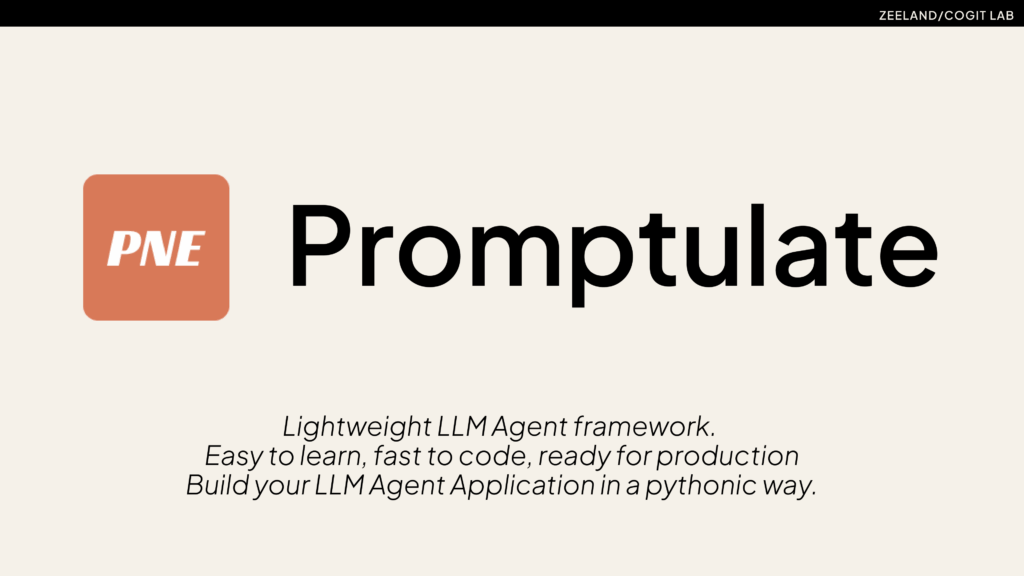promptulate
Basic Information
Promptulate is an AI Agent application development framework created by Cogit Lab that provides a concise, Pythonic SDK for building LLM-powered agent applications. It centralizes common agent concepts such as LLMs, Agents, Tools, RAG, and Planners into a small, composable API where most tasks can be performed using a single pne.chat call. The project targets developers who want to assemble autonomous agents that can plan, reason, call external tools, and produce structured outputs. It integrates with litellm for broad model provider compatibility and supports many model backends. The README includes examples for chat usage, agent planning with tool calls, structured output via Pydantic schemas, and atomized components like Planner to enable modular customization and lifecycle hooks for extensibility.








